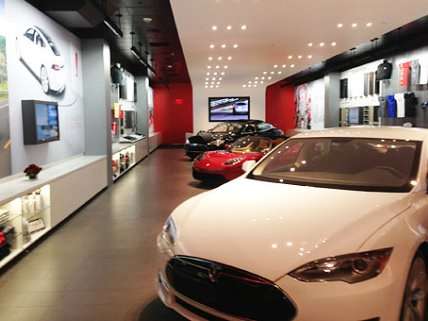New Jersey Bans Tesla Showrooms, Doesn't Even Need a Law
Whatever's not permitted is prohibited, apparently


From the school of "anything not permitted is prohibited" comes news that today New Jersey's Motor Vehicles Commission has unilaterally banned electric car showrooms operated by companies without franchised dealerships from the state of New Jersey. Via Bloomberg:
"Since Tesla first began operating in New Jersey one year ago, it was made clear that the company would need to engage the Legislature on a bill to establish their new direct-sales operations under New Jersey law," said Kevin Roberts, a spokesman for [Republican New Jersey Governor Chris] Christie. "This administration does not find it appropriate to unilaterally change the way cars are sold in New Jersey without legislation and Tesla has been aware of this position since the beginning."
Tesla says it didn't even know about the proposed rules change until yesterday. The Commission, which passed the rule unanimously, is chaired by a Christie nominee, and includes three members of Christie's cabinet. Tesla has been fighting similar control-freak/cronyist nonsense around the country. After all, these kind of laws and rules prohibiting Tesla from selling cars directly to consumers are generally intended to defend car dealerships, and are lobbied for by them. Even Texas, whose governor insists his state is "wide open for business," passed a protectionist law against electric car direct sales. Tesla did win a battle in New York, where a bill denying registration for cars not brought through a dealer failed to pass the legislature. Last year, Tesla's CEO, Elon Musk, said his company had two options to secure its ability to sell cars directly to customers, lobby Congress for federal legislation or file a federal lawsuit.
Tesla's status, meanwhile, as a recipient of the fruits of crony capitalism on the federal level means it's given an unfair advantage by the federal government and then saddled with unfair disadvantages by state governments, as A. Barton Hinkle noted last year.


Show Comments (50)